Partnership on Measuring ICT for Development
Partnership on Measuring ICT for Development
Session 340
Exploring the use of innovative data sources
The Partnership on Measuring ICT for Development is an international, multi-stakeholder initiative that was launched in 2004 to improve the availability and quality of ICT data and indicators, particularly in developing countries. The initiative is a direct response to the request made by the World Summit on the Information Society (WSIS) to produce official statistics to monitor the information society. The Partnership presented its Report “Partnership on Measuring ICT for Development: Information and communication technology statistics (E/CN.3/2022/21)” at the 53rd Session of the UN Statistical Commission (UNSC) that was held in New York on 1-4 March 2022. The Report introduced the revised Core List of ICT Indicators and highlighted the need to implement the revised guidelines with a view to improving the availability and quality of indicators on information and communications technology (ICT), and better assessing the digital readiness to face crises such as that caused by the coronavirus disease (COVID-19). This Report and its revised list of core indicators was welcomed and endorsed by the UNSC while it expressed the need to improve the availability and quality of ICT indicators in a wide range of sectors. The Commission supported the further exploration of use of alternative data sources, including administrative data, big data, and data-sharing agreements, for measuring ICT statistics in a timely manner.
Against this backdrop, the Partnership on Measuring ICT for Development will discuss the latest state of play in tapping into innovative data sources and multi-stakeholder collaboration to provide timely and relevant statistics. This session of the World Summit on the Information Society Forum 2022 will cover presentations on the use of Artificial Intelligence in government, mobile phone big data use applications and five principles for maintaining trust in this innovative data source, as well as a discussion on scanner data or web scraping (for business statistics). These innovative data sources have the potential to make an important link in the data ecosystem within both the public and private sectors, alongside traditional forms of data sources. Therefore, the Partnership wishes to enhance exposure to these innovations during this WSIS session – in an effort to boost recovery from the COVID-19 pandemic and accelerate the implementation of the Sustainable Development Goals in the Decade of Action.
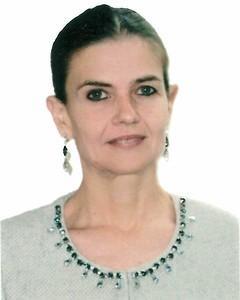
Ms. Tiziana Bonapace is an international trade economist, with over 14 years of experience working on economic and developmental policy issues. Ms. Tiziana Bonapace works at the UN ESCAP, one of the five regional Commissions of the UN. For more than a decade Ms. Bonapace has worked on trade policy issues, in particular on WTO related issues as they apply to policy formulation for Asian developing countries. Ms. Bonapace has been involved in the preparation of studies, research and analytical papers and has conducted numerous training courses and seminars for senior government officials and business leaders. Ms. Bonapace has lived in Italy, Thailand, and South Africa, where she obtained her Masters Degree in Commerce
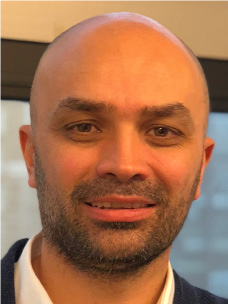
Deniz Susar is a Governance and Public Administration Officer, Digital Government Branch, Division for Public Institutions and Digital Government is a Governance and Public Administration Officer at the Division for Public Institutions and Digital Government of UNDESA. Deniz’s main work areas include digital government and preparation of the biannual UNDESA flagship publication ‘United Nations E-Government Survey'. As part of his current role, he also supports the Internet Governance Forum (IGF). HIs main research areas include e-government, open government, citizen engagement, internet governance, artificial intelligence and other frontier technologies and open government data. Deniz holds a Master Degree on International Political Economy and Development from Fordham University, New York, United States and a Computer Engineering degree from the Bosphorus University of Istanbul, Turkey.
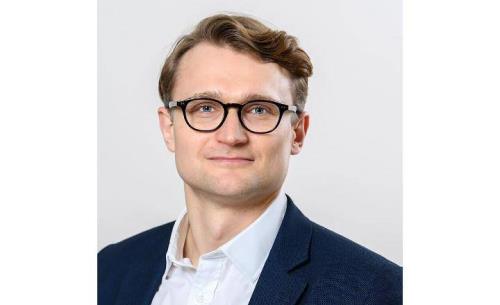
Slava Jankin is Professor of Data Science and Public Policy at the Hertie School. He is the Director of the Hertie School Data Science Lab. His research and teaching is primarily in the field of natural language processing and machine learning. Before joining the Hertie School faculty, he was a Professor of Public Policy and Data Science at University of Essex, holding a joint appointment in the Institute for Analytics and Data Science and Department of Government. At Essex, Slava served as a Chief Scientific Adviser to Essex County Council, focusing on artificial intelligence and data science in public services. He previously worked at University College London and London School of Economics. Slava holds a PhD in Political Science from Trinity College Dublin.
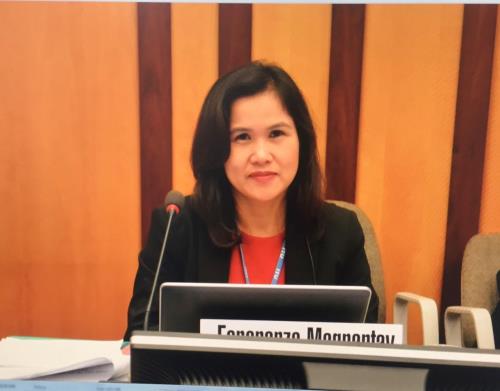
Ms Esperanza Magpantay is the Senior Statistician of the ICT Data and Analytics division of the International Telecommunication Union (ITU), where she has been working since December 2000. She is responsible for the collection, harmonization and dissemination of ICT statistics. Ms Magpantay coordinates the work of the ITU Expert Groups on ICT indicators, the ITU’s representative at the Partnership on Measuring ICT for Development and its Steering Committee, UN Inter-agency Expert Group on SDG Indicators and the UN Global Working Group on Big Data where she currently leads the Task Team on mobile phone big data. She has represented ITU in international meetings including the UN Statistical Commission and the UN Committee for the Coordination of Statistical Activities (CCSA), and in regional events giving presentations and trainings on ICT statistics. Before joining ITU, she worked for 7 years at the International Labour Office (ILO) in Geneva as a statistical officer. She has a Bachelor degree in Statistics from the University of the Philippines and Master in Business Analytics and Big Data from IE University in Madrid, Spain.

Siim Esko mainly works with large public sector institutions across Asia, Africa and South America to leverage location data from mobile networks. He used to work for the public think tank Estonian Development Fund as an expert on foresight and emerging economies. He has been a consultant to the UN Statistics Division and International Telecommunications Union in big data topics. Siim has graduate degrees in economics from Copenhagen and Vienna. He now leads the business development at Positium.
Positium has been analysing big data from mobile network operators for 15 years. Statistical offices and governments in the Middle East, Europe and South-East Asia have turned to Positium as a global market leader specialising in mobile positioning data for official statistics. Positium understands statistical business processes and our mission is to improve the quality of life through data-driven decisions based on mobile positioning data.
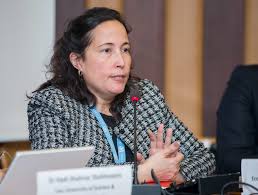
Ms. Scarlett Fondeur Gil is an Economics graduate from the Santo Domingo Institute of Technology in the Dominican Republic, with a Masters in International Relations from the University of East Anglia in the United Kingdom. She has been working for the last nine years as an Economic Affairs Officer for the ICT Analysis Section of the UN Conference on Trade and Development, UNCTAD, based in Geneva, Switzerland. She and her colleagues produce the annual Information Economy Report, which analyzes trends on ICT and the information economy in developing countries and makes policy recommendations to UNCTAD member states. She is also involved in the development of internationally comparable ICT statistics in the context of the Partnership on Measuring ICT for Development, which is composed by 13 international organizations. In this context, UNCTAD is a member of the Partnership's Task Group on E-waste measurement. UNCTAD currently collects data on the use of ICT by businesses, on the ICT sector, and on international trade in ICT goods, and aims to continue developing statistical work on measuring trade in ICT services, and gender and ICT.
![Xianhong Hu [ --- LEAD DISCUSSANT --- ]](/net4/wsis/forum/2022/Files/View/IMG/3c4755e2b8e1ec119143d067e5f879f3/UNESCO.jpg?maxwidth=500)
Dr. Xianhong Hu, UNESCO’s Programme Specialist at the Sector of Communication and Information since 2006. She serves on the Secretariat of UNESCO’s Intergovernmental Program of Information for All (IFAP) and leads UNESCO project of Internet Universality R.O.A.M principles (Rights, Openness, Accessibility, Multi-stakeholder) indicators. She is an affiliate and alumni of Harvard University Berkman Klein Center for Internet and Society. Her expertise and responsibilities are in the areas of freedom of expression, access to information, privacy, journalism, media development, Internet governance and AI policies. She has followed the UN led processes of the World Summit of the Information Society (WSIS) and Internet Governance Forum (IGF). Her policy work relates to apply ROAM principles to govern the Artificial Intelligence and other advanced ICTs including 5G, block chains, IoT, etc, through her recent co-authored UNESCO study Steering AI and Advanced ICTs for Knowledge Societies: A ROAM Perspective’. She initiated UNESCO Series Publication on Internet Freedom which has captured the complex dynamics of global Internet governance by studying policy issues of online freedom of expression, privacy, Internet intermediaries, digital safety, Artificial Intelligence, etc. She has conducted UNESCO Series Publication on investigative journalism including “Story-Based Enquiry: A Training Manual for Investigative Journalism” and “Global Casebook of Investigative Journalism”. She received a Ph.D from School of Journalism and Communication at Peking University in China in 2007.
-
 C11. International and regional cooperation
C11. International and regional cooperation
ICT statistics are useful and relevant to all WSIS Action Lines, in particular to provide an evidence base for digital policy making.
-
 Goal 4: Ensure inclusive and equitable quality education and promote lifelong learning opportunities for all
Goal 4: Ensure inclusive and equitable quality education and promote lifelong learning opportunities for all
-
 Goal 5: Achieve gender equality and empower all women and girls
Goal 5: Achieve gender equality and empower all women and girls
-
 Goal 9: Build resilient infrastructure, promote sustainable industrialization and foster innovation
Goal 9: Build resilient infrastructure, promote sustainable industrialization and foster innovation
-
 Goal 17: Revitalize the global partnership for sustainable development
Goal 17: Revitalize the global partnership for sustainable development
The COVID-19 pandemic has affected the ability of countries to conduct survey-based data collection and delayed statistical production, including on ICT for development statistics. At the same time, the enforced digitalization prompted by the pandemic, as well as the looming deadline of the 2030 Agenda for Sustainable Development, made it more urgent to produce more and better ICT statistics in support of efforts to monitor recovery policies. The pandemic highlighted the limitations of traditional sources of data for ICT statistics, stimulated the search for innovative and alternative data sources, and reinforced the need to consider data governance in the context of official statistics. This session will consider the ongoing and future work in these areas.
https://www.itu.int/en/ITU-D/Statistics/Pages/intlcoop/partnership/pub.aspx